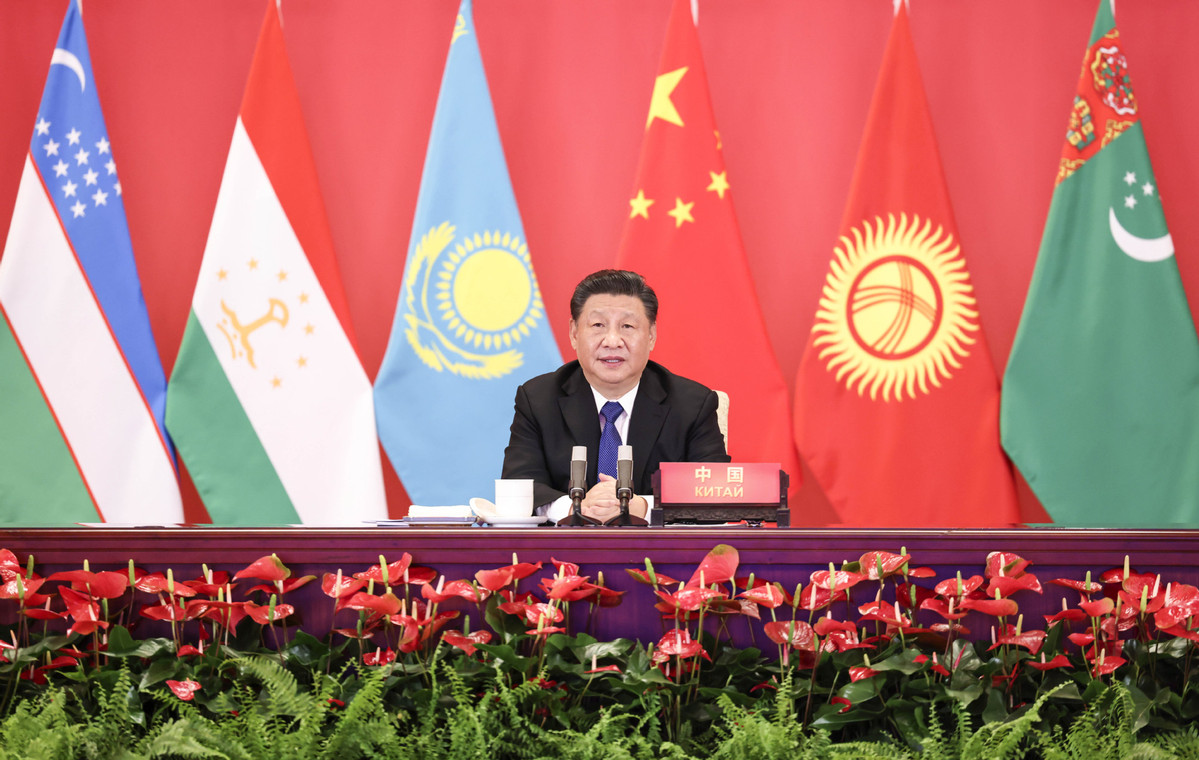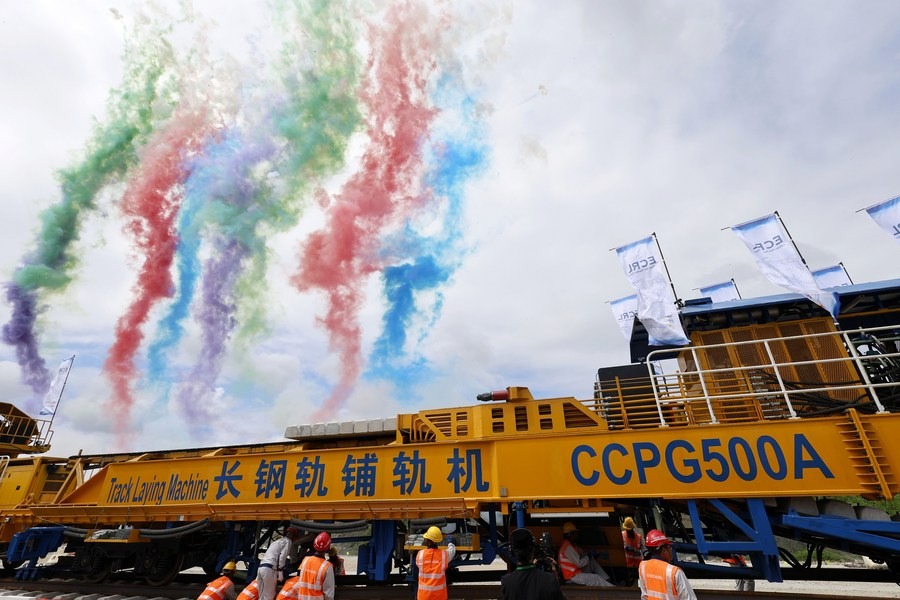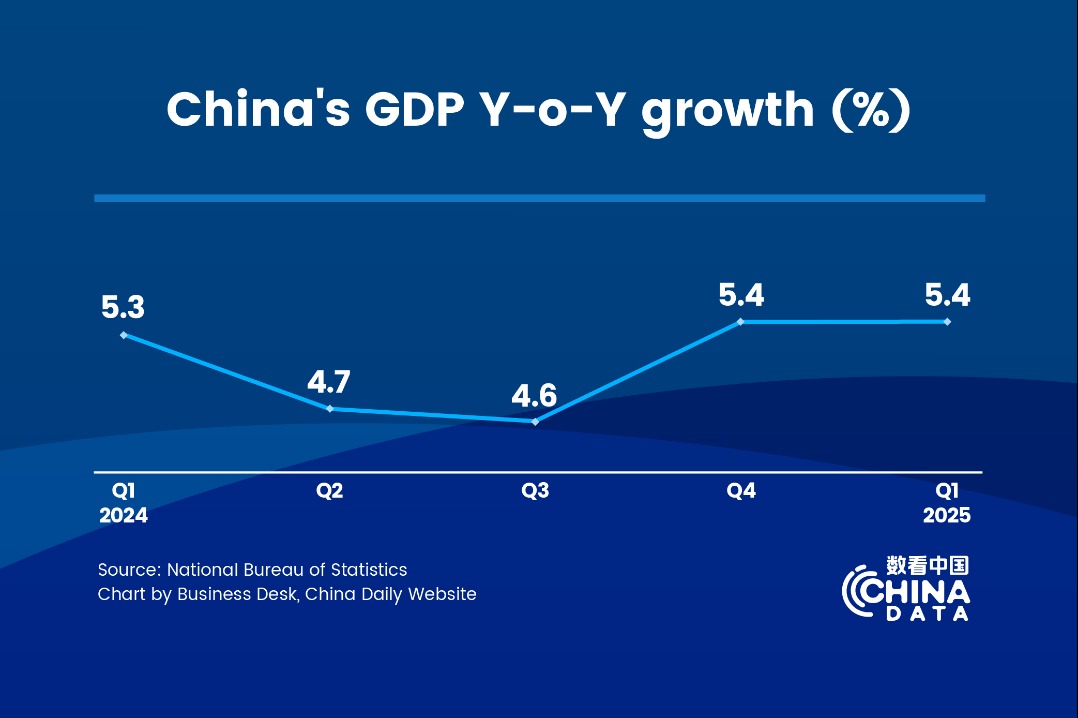China and Central Asia enter a new era of cooperation
By Seymur Mammadov | chinadaily.com.cn | Updated: 2022-01-28 14:18

On Tuesday, January 25, an online summit was held dedicated to the 30th anniversary of the establishment of diplomatic relations between China and five Central Asian countries. Speaking at the 1+5 summit, Chinese President Xi Jinping said that Beijing is ready to cooperate with the countries of Central Asia in building a closer China-Central Asia community with a shared future. No matter how the international situation develops, he said, China has been and remains a good neighbor, reliable partner, close friend and brother for the Central Asian countries, whom you can trust and rely on.
In fact, that's the way it is. Indeed, for many years China has been a major investor for the countries of the region, providing them with connections to the projects implemented in the Eurasian and even wider space. Today, the joint projects already involved and planned for the future cover over 100 areas of practical cooperation.
Since 2000, that is, since the transport problems between the countries of Central Asia and China were resolved, an era of cooperation began, which was successful and growing year by year. According to Chinese customs data, in 2001 the Central Asian countries' trade with China amounted to $1.5 billion, and over the next twenty years it increased by more than 25 times. The largest increase in trade with China was recorded in this period in Turkmenistan - from $32.7 million in 2001 to $6.5 billion in 2020 (an increase of 199 times). Over the same 20 years, the foreign trade turnover of Uzbekistan and China has grown more than 100 times, from $58.3 million in 2001 to $6.6 billion in 2020; Tajikistan and China - from $10.7 million in 2001 to $1.06 billion in 2020; Kyrgyzstan and China from $118.9 million in 2001 to $2.9 billion in 2020; Kazakhstan and China - from $1.3 billion in 2001 to $21.4 billion in 2020. The plans include an increase in trade in this format up to $70 billion.
It should be noted that China is the main importer of Central Asian products. Today, opportunities are being considered for expanding border trade, strengthening and expanding sister city ties between the regions and cities of China and the Central Asian countries, taking into account their economic structure and specifics. The Chinese side in every possible way demonstrates its interest in expanding the import of agricultural products from the countries of Central Asia. China proposes to create a dialogue mechanism on cooperation in the field of electronic commerce between the Central Asian countries and to hold a forum on industrial and investment cooperation.
China is one of the largest investors in the region. By the beginning of 2021, the total volume of direct Chinese investments in the economies of the countries of the region reached $40 billion. For example, Kazakhstan accounted for $21.4 billion, Kyrgyzstan - $4.6 billion, Uzbekistan - over $10 billion, Tajikistan - over $3 billion. Chinese companies have been successfully operating in the region for several years already, and many joint ventures have been created.
Over the past twenty years, thanks to cooperation with China, the logistical capabilities of the Central Asian countries have significantly increased, which entered a period of prosperity after the region was connected to the Belt and Road Initiative. In recent years, the countries of Central Asia have felt real practical benefits from participating in the Chinese initiative. As part of this initiative, many infrastructure projects are being implemented in the countries of the region, and Chinese investments are growing. The region has very large transit opportunities, which are in the focus of the Chinese side and will be in demand to strengthen the transport and logistics corridors between Europe and Asia.
The significance of such cooperation was especially evident with the onset of the pandemic, when the volume of container rail traffic between the European Union and China increased. Transit through Central Asia has made the countries of the region an integral part of the Belt and Road Initiative. Over the past few years, the volume of cargo transported in containers only through Kazakhstan has increased six times. Until 2025, the volume of transit container traffic through Kazakhstan via the EU-China route promises to grow to 1,660,000 TEUs (twenty-foot equivalent), which allows us to talk about the transformation of the republic into one of the most important points of cargo turnover between Europe and China.
Moreover, thanks to the effective interaction of customs and other services, the time for trains to pass at the Khorgos and Alashankou border checkpoints was reduced from ten hours to less than one hour! In 2021, more than 8,000 freight trains on the China-Europe routes passed through the Alashankou and Khorgos checkpoints. The Kazakhstan section of the Western Europe-Western China road corridor was fully commissioned, along which for the first time in history bilateral door-to-door cargo transportation was carried out.
Speaking at the summit, Xi stressed that against the background of the pandemic, passenger transportation will be gradually resumed, "fast tracks" will be installed to facilitate the movement of people, and "green corridors" will be landscaped to ensure the unhindered movement of goods. The implementation of the China-Kyrgyzstan-Uzbekistan railway project will be accelerated, transport corridors connecting China and Central Asia will be developed to ensure safer and more efficient communication between the countries.
It should be noted that with the onset of the pandemic, China once again demonstrated that all Beijing's assurances to the countries of Central Asia were sincere. The Chinese side has repeatedly stated that relations between the PRC and the countries of Central Asia are built on good neighborliness, mutual respect, mutual benefit and readiness to help in difficult times. The pandemic has shown that these were not just words.
In the first months of the pandemic, the Central Asian countries provided China with invaluable assistance and support. Subsequently, the Chinese government, which managed to take control of the situation in its country, repeatedly provided assistance to the five countries of the Central Asian region. Teams of Chinese doctors and humanitarian aid were sent to these countries, more than 10 million doses of Chinese vaccines were donated. The total amount of assistance in connection with the pandemic to the countries of Central Asia for 2020-2021 reached $100 million. China will continue to supply vaccines and anti-epidemic drugs to the countries of Central Asia this year, as well as increase joint production and transfer of vaccine technologies and medicines for COVID-19. In 2022, China plans to transfer 50 million doses of vaccines to partners in Central Asia.
It seems that the pandemic has made the China-Central Asia format even stronger, strengthening trust between the countries.
China has always supported peace, healthy trends and cooperation in the region. Currently, active work is underway to create a dialogue on security and cooperation in Central Asia, the development of a draft roadmap for the development of regional cooperation for 2022-2024 has been completed, and the signing of the Treaty on Friendship, Good Neighborliness and Cooperation for the Development of Central Asia in the 21st century is being prepared.
Over the next three years, the Chinese government will provide $500 million in grant assistance to Central Asian countries in support of livelihood programs and organize 5,000 workshops to help countries in the region train specialists in the fields of health, poverty reduction, agricultural development, communications, information technologies and so on.
It is safe to say that today, when the world is recovering from the pandemic shock, China and the countries of Central Asia are entering a new era of relations.
The author is director of the international expert club EurAsiaAz and editor-in-chief of Azerbaijani news agency Baku Tribune.
The views don't necessarily reflect those of China Daily.
If you have a specific expertise and would like to contribute to China Daily, please contact us at opinion@chinadaily.com.cn , and comment@chinadaily.com.cn.
























